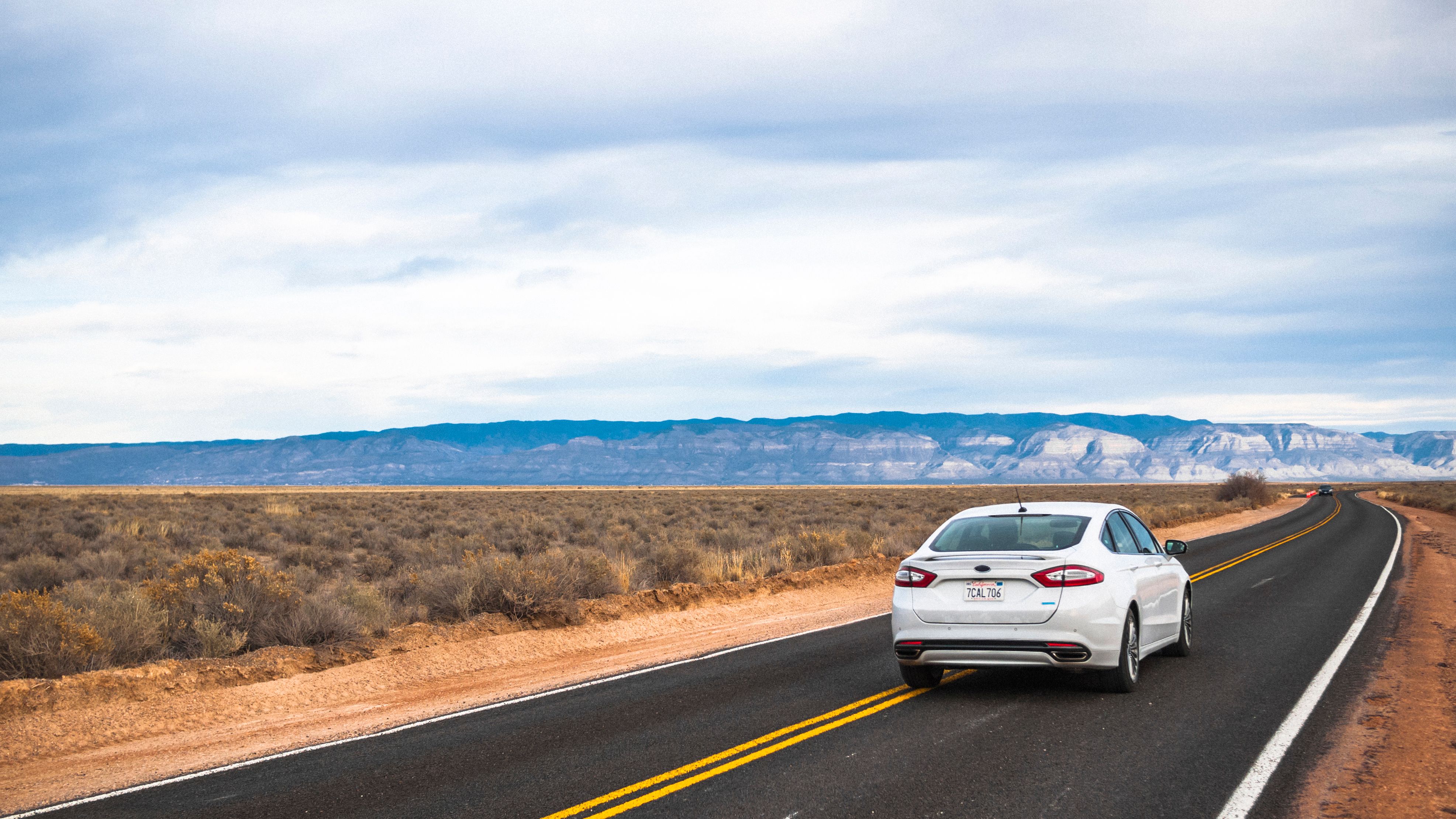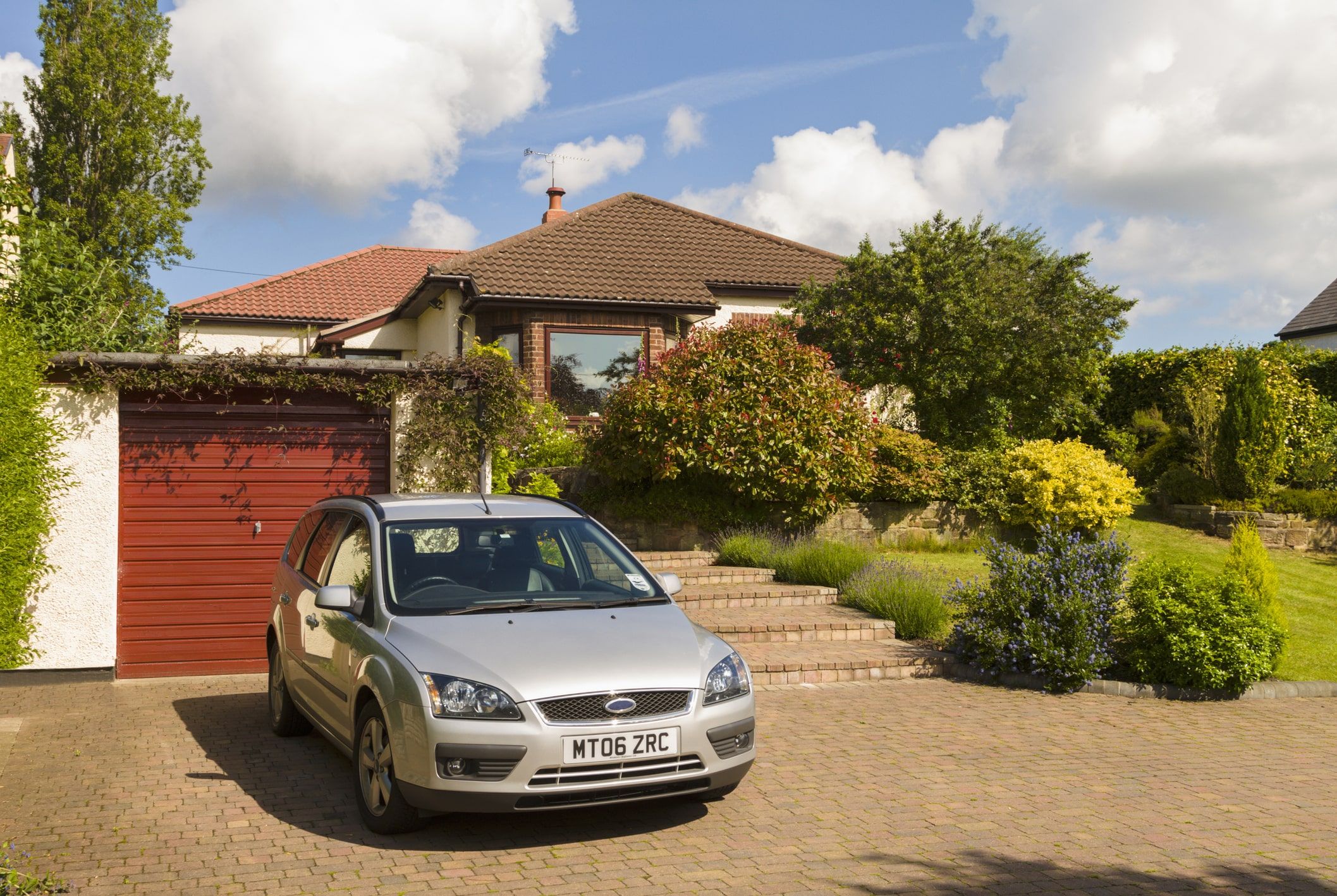Car Insurance Premium Calculator

Car Insurance Premium Calculator
Your car is more than just a vehicle—it's your companion on daily commutes, family trips and memorable journeys. Protecting it with the right car insurance policy is essential. While regular maintenance keeps your car running smoothly, a comprehensive insurance policy safeguards it against unexpected events like accidents, theft and damage.
Understanding how much you need to pay for this protection is crucial and that is where a car insurance premium calculator becomes your trusted tool for making informed decisions.
How to Find VIN, Chassis & Engine Number of Your Car in India
How to Find Vehicle Owner Details Using Registration Number
What is a Car Insurance Premium Calculator?
A car insurance premium calculator is a free online tool that helps you estimate the cost of your car insurance policy. Whether you are buying a new insurance policy or using a car insurance renewal premium calculator for an existing one, this tool simplifies the entire process. You simply enter basic details about your vehicle, such as registration number, model and location and the online car insurance calculator instantly provides an estimated premium amount.
This car premium calculator also allows you to adjust important factors like Insured Declared Value (IDV) and select add-ons such as zero depreciation or roadside assistance, helping you compare different policies and find the best coverage within your budget without any hassle.
How to Use TATA AIG Car Insurance Premium Calculator?
Using our car insurance policy premium calculator is simple and takes just a few minutes. Enter the details of your car, choose your preferred coverage options and receive an instant premium quote tailored to your needs.
1. Enter Registration Number: Provide your car's registration number in the car premium calculator and click "Get Price" to proceed further.
2. Verify Car Details: The calculator automatically fetches your car's make, model and year. Review these details and correct them if needed.
3. Get Your Quote: Select your desired IDV, add previous policy details if renewing and enter your mobile number to receive your instant quote.
How is Car Insurance Premium Calculated?
- Car Insurance Premium Formula: Car Insurance Premium = Own Damage Premium - (NCB + Discounts) + Third-party Liability Premium + Add-on Premium + GST
- Own Damage Premium: This component is calculated based on your car's Insured Declared Value (IDV), which depends on the car's make, model, age and current market value.
- No Claim Bonus (NCB) & Discounts: If you haven't made any claims in previous years, you receive an NCB discount ranging from 20% to 50%, which reduces your premium amount.
- Third-party Liability Premium: This is a fixed amount regulated by IRDAI and varies based on your car's engine cubic capacity or power output for electric vehicles.
- Add-on Premium: Additional coverage options like zero depreciation, engine protection and roadside assistance increase your premium but provide enhanced protection for your vehicle.
- GST: A standard 18% Goods and Services Tax is applied to the total premium amount, which forms part of your final car insurance policy cost.
Information Required to Calculate Car Insurance Premium
1. Car Registration Number: Your vehicle's registration number helps the car insurance premium calculator automatically fetch accurate details about your car's make, model, variant and year of manufacture for precise premium calculation.
2. Vehicle Make and Model: The specific manufacturer and model of your car significantly impact the premium, as high-end cars have higher repair costs than economy models.
3. Year of Manufacture: The age of your vehicle directly affects the IDV calculation in the online car insurance calculator, with newer cars having higher premiums due to their greater market value.
4. Policy Type Selection: Comprehensive coverage offers more protection at a greater cost than third-party insurance on the car insurance premium calculator.
5. Previous Policy Details: You can use the car insurance renewal premium calculator, enter your existing insurance policy number and previous insurer details to calculate applicable NCB discounts and ensure continuity of coverage benefits.
6. Add-ons Required: Optional covers like zero depreciation, engine protection, roadside assistance and consumables cover enhance your car insurance policy but increase the overall premium amount based on your specific protection needs.
Factors That Determine Your Car Insurance Premium
Car Make and Model
The brand and model of your car directly affect your insurance costs. Luxury cars are more costly to insure since they need expensive components and maintenance. Economy cars have easily available parts, so they are cheaper to insure.
Age of Your Vehicle
Your car loses value as it gets older due to wear and tear. This depreciation means older vehicles have lower premiums than newer ones. A brand new car costs more to insure than a five-year-old car. The four-wheeler insurance premium calculator uses your vehicle's age and current market value to calculate the right premium for you.
Your Driving History
Insurers reward safe drivers with lower premiums. If you haven't filed any claims in previous years, you can get discounts of up to 50% through No Claim Bonus. On the other hand, drivers with a history of accidents or multiple claims pay higher insurance costs. The car insurance premium calculator online shows you exactly how much your NCB can reduce your premium at renewal.
Type of Coverage Selected
Your choice of coverage makes a big difference to your premium amount. Third-party insurance is the most basic and affordable option because it only covers damages to others. The comprehensive car insurance coverage costs more, but it protects both your car and third-party liabilities. Standalone own-damage policies fall somewhere between these two options in terms of cost.
Add-ons
Additional covers like zero depreciation, engine protection and roadside assistance give you better protection but increase your premium. While these add-ons make your car policy more expensive, they save you money during claims. You need to find the right balance between good coverage and affordable premiums. The car insurance policy calculator shows you the exact cost of each add-on so you can choose wisely.
Insured Declared Value (IDV)
It is the maximum amount your insurance company will pay if your car is stolen or damaged. A higher IDV means better claim settlement, but it also means a higher premium. You can adjust the IDV within a certain range to balance your coverage and cost. The online car insurance calculator shows you different premium options based on the IDV you select.
Voluntary Deductible
Your premium will drop when you pay part of the claim. If you choose a bigger deductible, the insurance company will charge you less because it lowers their risk. This works well for drivers who rarely make claims. The car policy premium calculator clearly shows you how much you will save with different deductible amounts.
Benefits of Using Car Insurance Premium Calculator
Get Instant Premium Quotes
With an online car insurance calculator, you just enter your car's registration number and basic details to get instant estimates. It only takes a few minutes, so you can make choices right away without having to wait.
Compare Multiple Policies Easily
Shopping for insurance becomes simple when you can compare different plans side by side. The car insurance policy renewal calculator displays various coverage options with their benefits and costs in one place. You can evaluate each plan without opening multiple tabs or making endless phone calls. This complete view helps you find the best value for your money easily.
Complete Transparency in Pricing
The calculator breaks down your premium into clear parts so you understand what you are paying for. You can see the base premium, taxes, add-on charges and discounts separately without any confusion. The car insurance premium calculation formula used by these tools ensures complete transparency and builds your trust in the pricing.
Customise Your Coverage
Every driver has different needs and budgets and the premium calculator allows you to adjust coverage accordingly. When you make changes to your IDV or add or remove covers, you can see how those changes affect your rate. This helps you select a car insurance policy that matches your exact requirements perfectly.
Save Time and Money
Earlier, purchasing a car insurance policy meant visiting offices, talking to agents and waiting for quotes. The car insurance renewal premium calculator removes all these steps and lets you make informed decisions without leaving your home. You can use this tool anytime and from anywhere and choose a policy that fits both your coverage needs and budget.
Understand What Affects Your Premium
Using the calculator teaches you about insurance pricing in a practical way. You can understand how factors like NCB, add-ons, and IDV change your premium amount. This knowledge helps you make better choices now and during future renewals as well. The new car insurance premium calculator becomes a learning tool that improves your insurance understanding over time.
Tips to Reduce Your Car Insurance Premium
Avoid Filing Small Claims
When you have minor damages that cost less than your deductible, consider paying yourself instead of filing a claim. Small claims reduce your No Claim Bonus, which helps you earn discounts over the years. One claim-free year earns you 20% NCB, and this grows to 50% after five years. Use a 4-wheeler insurance calculator to check how much your NCB lowers your premium before you decide to claim.
Install Anti-Theft Devices
Adding certified anti-theft systems like steering locks, alarms, or GPS trackers makes your car safer. Insurance companies see this as less of a risk and will lower your rates if you install approved security devices in your car. The discount varies by insurer, but it can meaningfully lower your costs. Compare policies to find the best anti-theft device discounts available in the market.
Increase Voluntary Deductible
By choosing to pay a bit more from your pocket during claims, you show insurers that you are a responsible driver. This voluntary deductible reduces their risk, and they reward you with lower premiums as a result. Select a deductible you can afford if necessary. The car insurance policy premium calculator shows you exactly what you will save with different deductible levels clearly.
Renew Before Expiry
Letting your car policy lapse even for one day can cost you your No Claim Bonus and other benefits. Late renewals often need physical vehicle inspections, which take time and may increase your premium as well. Timely renewal keeps all your discounts safe for the next coverage period. Check renewal costs using a car insurance policy renewal calculator well before your current policy expires to avoid any issues.
Buy Your Policy Online
Insurance companies save money when you buy directly from their websites and they share these savings with you. Online purchases come with web discounts that offline channels don't offer to customers. The process is also faster with instant policy issuance and digital documents sent to your email immediately.
Choose Only Necessary Add-ons
While add-ons give extra protection, you don't need every cover available in the market. For example, engine protection isn't necessary if you live in a dry region and rarely drive through waterlogged areas. Similarly, zero depreciation makes sense for new cars but may not be worth it for older vehicles.
Car Insurance Add-Ons Available
- Zero Depreciation Cover: This cover makes sure you get the full claim amount without any depreciation cuts on replaced parts, making it ideal for protecting new cars in heavy traffic.
- Return to Invoice Cover: If your car gets stolen or damaged, Return to Invoice cover pays you the complete original invoice value, including all registration fees and taxes.
- Engine Secure Cover: This protection covers your engine and gearbox against damage from water ingress or oil leakage, which is particularly essential during monsoon floods in low-lying areas.
- NCB Protection: This add-on keeps your valuable no-claim bonus discount safe even after making one claim, so your car insurance policy premium savings remain intact for renewal.
- Roadside Assistance Cover: Get immediate help with towing, fuel delivery, battery jump-start, or mechanic services available round the clock, anywhere you face breakdowns on the road.
- Key Replacement Cover: This cover pays the complete cost of getting new car keys made and remote reprogramming done if your keys get lost, stolen, or damaged accidentally.
- Daily Allowance Cover: Receive daily travel allowance money while your car stays at the garage for repairs, ensuring you have alternative transport arrangements without financial stress.
- Tyre Secure Cover: This add-on pays for tyre repairs or complete replacement after damage from potholes, cuts, or sudden bursts.
- Emergency Transport & Hotel Expenses: If you get stranded far from home after an accident, this cover reimburses your hotel stay and travel costs so you can return safely.
- Consumables Cover: This reimburses costs of engine oil, brake fluid, nuts, bolts and other consumable items used during accident repairs that basic car policy plans don't cover.
- Loss of Personal Belongings: This add-on protects your personal items like bags, laptops and gadgets that get stolen or damaged from your car during accidents or theft incidents.
- Emergency Medical Expenses: Get immediate reimbursement for medical treatment costs if you or your passengers suffer injuries in road accidents, providing quick financial help when needed most.
- Repair of Glass, Fibre, and Plastic Parts: Get your windshield, bumper and plastic parts repaired without affecting your NCB discount, so minor damages don't impact your car insurance policy's future premiums.
- Additional TP Property Damage: This provides extra financial protection if your car accidentally damages someone else's expensive property, offering good coverage even for third-party policyholders.
- Misfuelling Cover: If you accidentally use the wrong or contaminated fuel, this cover pays for repairs, draining, and cleaning. It also refunds up to ₹2,000 for the incorrect fuel, and you can make one claim in a year.
- Depreciation Allowance – Battery: This cover includes depreciation on the cost of replacing your vehicle’s battery during an own-damage claim. You can choose a deductible of either zero or 5% of the claim amount.
- Electric Surge Secure (For EVs): This cover protects your electric vehicle from electrical issues like short circuits, arcing, or water damage. However, it doesn’t cover any manufacturing defects.
Third-Party Car Insurance Premium Rates
| Category | Engine Cubic Capacity | Yearly Premium Rate (in ₹) | 3-Year Premium Rate (in ₹) |
|---|---|---|---|
| Private Four-Wheelers | Not more than 1,000cc | ₹2,094 | ₹6,521 |
| Private Four-Wheelers | More than 1,000cc but less than 1,500cc | ₹3,416 | ₹10,640 |
| Private Four-Wheelers | More than 1,500cc | ₹7,897 | ₹24,596 |
| Private Electric Four-Wheelers | Not exceeding 30 KW | ₹1,780 | ₹5,543 |
| Private Electric Four-Wheelers | Between 30 KW and 65 KW | ₹2,904 | ₹9,044 |
| Private Electric Four-Wheelers | Above 65 KW | ₹6,712 | ₹20,907 |
Conclusion
Finding the right car insurance policy doesn't have to be complicated when you have the right tools at your disposal. Using a car insurance premium calculator helps you understand exactly what you are paying for and why, making it easier to compare car insurance plans from different providers. This empowers you to make smart decisions that protect both your vehicle and your budget effectively.
At TATA AIG, we understand that every driver has unique needs and financial considerations for their vehicle protection. Our car policy premium calculator gives you instant quotes, complete pricing transparency and the freedom to customise coverage according to your specific requirements.
We are committed to helping you find the perfect car insurance policy that offers comprehensive protection without stretching your budget, which ensures peace of mind on every journey you take.
Disclaimer / TnC
Your policy is subjected to terms and conditions & inclusions and exclusions mentioned in your policy wording. Please go through the documents carefully.


